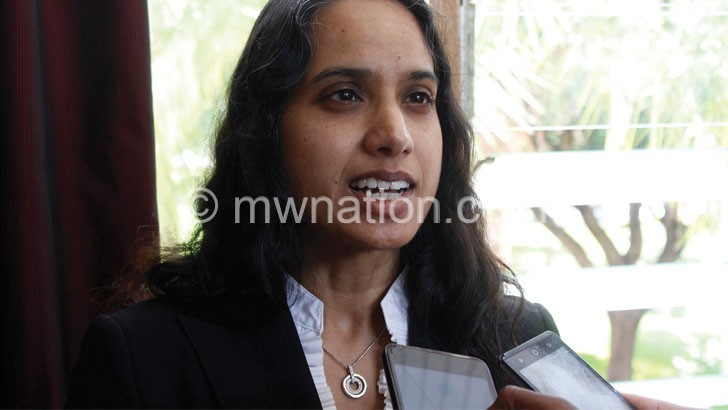Government over-expenditure worries IMF
International Monetary Fund (IMF) has expressed concern over Malawi’s failure to tame public expenditure, a development that has resulted in government failing to balance the budget in the first-half of the financial year ended December 31 2018.
Minister of Finance, Economic Planning and Development Goodall Gondwe has conceded that most of the reported cases of over expenditure were related to the May 21 2019 Tripartite Elections.

Ministries, departments and agencies (MDAs) which overspent include Malawi Police Service and Malawi Defence Force (MDF).
In a statement issued yesterday to mark the end of an IMF mission visit for discussions on the second review of the three-year Extended Credit Facility (ECF), IMF mission chief for Malawi Pritha Mitra said while the economic outlook was favourable and growth could rise to six to seven percent over the medium term, government should contain borrowing.
She noted that performance under the ECF has been good and that all-but-one target for end December were met.
During the visit, the IMF mission found that the target on the primary balance (fiscal balance that excludes interest payments) was missed largely due to front-loading of budgeted expenditures and increases in spending to hold elections.
Said Mitra: “It is a concern that end December 2018 fiscal targets part of spending that we had not originally agreed on, extra spending that was needed for the elections. The minister also mentioned there will be extra spending coming up to deal with the floods.
“We went through the budget and what has been spent line by line and our assessment is that the large part of it was just over execution of what they had already planned to spend for the whole year.”
She said Treasury would have to make up for the expenditure in the next fiscal year and discussions were still underway on other unplanned expenditure result from the floods experienced recently.
In an interview after the IMF briefing, Gondwe confirmed that there were cases of over expenditures that occurred. But he said the expenditures were necessary for some programmes not to stall, among them elections and the Population and Housing Census.
He said: “When they looked at December figures, they [IMF] found that we had overspent. We spent very early on fertiliser. We spent upfront on census and this caused us to heap up expenditures in the first half whereas resources from revenues were not frontloaded and, therefore, we could not make targets for primary balance.”
The minister admitted that Treasury relied on borrowing from the Reserve Bank of Malawi (RBM) to meet the expenditure lines when there was not enough revenue in the Treasury.
Said Gondwe: “Eventually, we relied more on the Reserve Bank of Malawi than should have been the case because of the front loading of expenditure. That is what IMF is telling us we should not have done.”
However, the minister was adamant that this was necessary to avoid challenges in the elections and other areas.
Said Gondwe: “We are practical people. If we were to follow what they are telling us, we would have a lot of problems with the Electoral Commission and the country. As such, we have to do what is practically necessary.”
On RBM bailing out Treasury, he said: “I regard that to be the purpose of the central bank as far as this aspect is concerned, that they come in to support the activities of the government at the point when there isn’t anybody else who can provide the resources.”
IMF also urged the government to improve debt management in the face of high debt levels which their assessment last year found that the risk of external debt distress for Malawi is medium and the risk of overall debt distress is high largely due to increases in domestic borrowing by the government in recent years.
In an interview later, Mitra said: “Because debt levels are still high, we encourage the government to pursue concessional financing so grants or loans that are heavily discounted and that’s what the government has been pursuing in order to finance large infrastructure projects.”
The budget’s downward revision by K25 billion as well as downward revision of grants and revenues from K1.2 trillion to K1.1 trillion against expenditure means that Treasury has to work with a deficit of K255 billion.
In the circumstances, Gondwe has revised upwards domestic borrowing from K164.2 billion to K214.7 billion.





